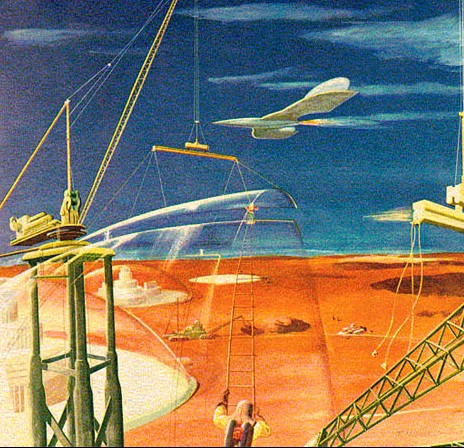Plenty of bright people handicapping the Mars-or-bust business make sound arguments for why states will ultimately win the new public-private Space Race (costs chief among them), but one of the least convincing is that massive wealth won’t necessarily fall to those who pioneer in this area, thereby reducing the ambition of corporations. That’s a misunderstanding of the mindset driving Musk, Bezos, etc. Most of the Earth moguls in the competition are looking for currency of a different sort–to leave their mark on humanity in a large-scale way never before possible. As is the new custom of Silicon Valley, a place awash in riches, money itself is a secondary measuring stick.
From Miriam Kramer’s Mashable piece about what the Falcon 9’s success means for Musk’s Mars dreams:
“I think that there’s so much more to understand and learn about the nature of the universe, and that understanding will grow proportional to the scope and scale of civilization,” Musk said during the meeting. “The probable life span of human civilization is much greater if we’re a multi-planet species as opposed to a single-planet species.”
In Musk’s mind, to turn that vision into reality, companies need to start bringing the cost of spaceflight down dramatically, and one way to do that is through building reusable rockets.
At the moment, it costs companies about $60 million to buy a SpaceX Falcon 9, but only about $200,000 of that is the cost of the fuel needed to launch the rocket and payload to orbit.
Most rockets today are built to be discarded once they deploy their expensive satellites, cargo or even people into space, but that’s not the way Musk wants to do things.
In Musk’s vision of the future, a fleet of reusable rocket stages will be able to fly multiple payloads to orbit over the course of their lifetimes, effectively slashing the cost of spaceflight, Musk said. Instead of this once-use mentality, Musk hopes that rockets will be more like airplanes in the future.
“I think it is critical step on the way towards being able to establish a city on Mars,” Musk said during the press conference. “Because I think quite vital to that goal is reusability in orbit-class rockets. It is really fundamental to that goal. Without which it would really be unaffordable.”•


